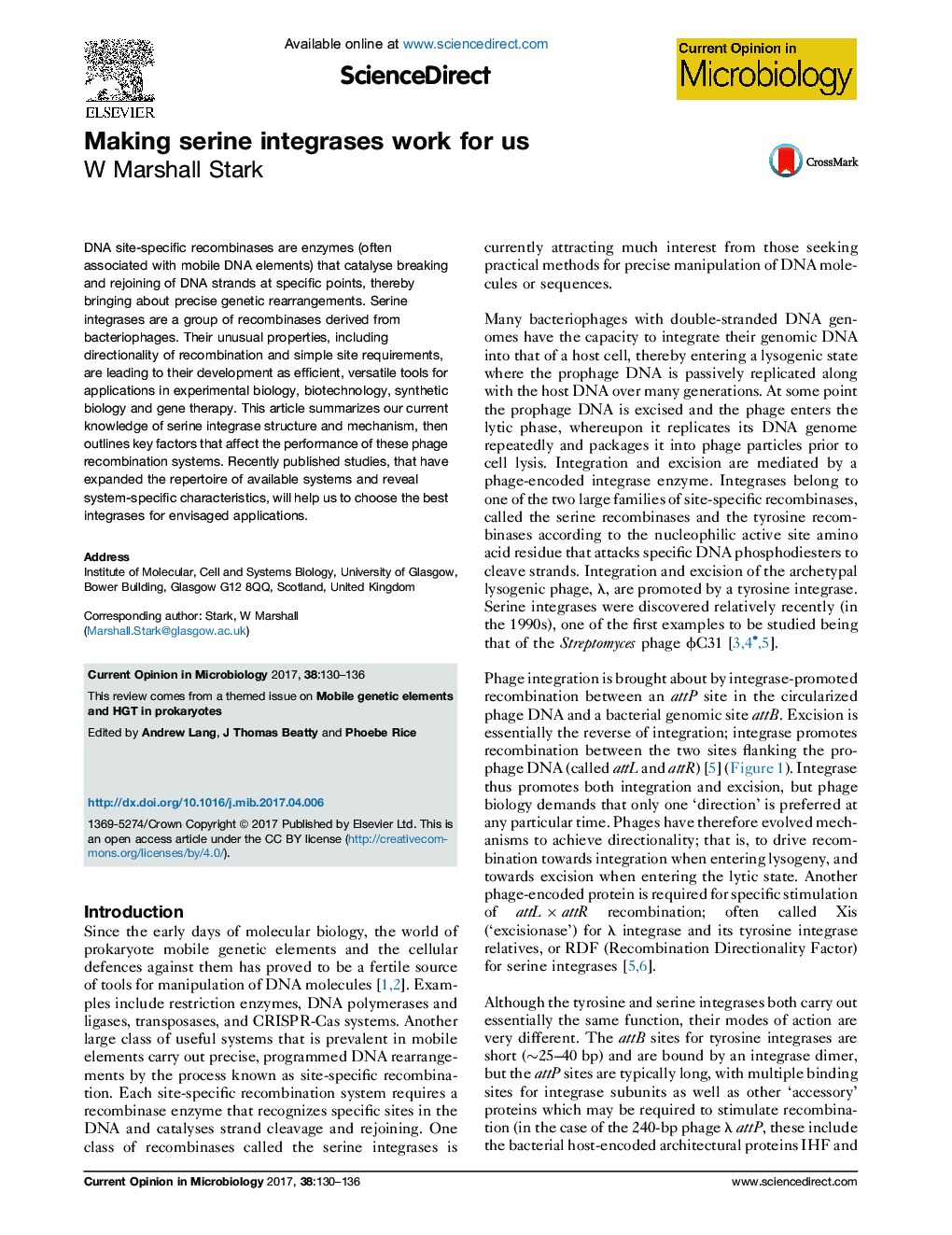| Article ID | Journal | Published Year | Pages | File Type |
|---|---|---|---|---|
| 5671701 | Current Opinion in Microbiology | 2017 | 7 Pages |
â¢Serine integrases are becoming popular tools for research and biotechnology.â¢Some applications (such as genetic logic systems) require several serine integrases.â¢Useful serine integrases should be robust, efficient and directional.â¢Serine integrases used in combination should be mutually orthogonal.â¢This review discusses recent studies revealing serine integrase characteristics.
DNA site-specific recombinases are enzymes (often associated with mobile DNA elements) that catalyse breaking and rejoining of DNA strands at specific points, thereby bringing about precise genetic rearrangements. Serine integrases are a group of recombinases derived from bacteriophages. Their unusual properties, including directionality of recombination and simple site requirements, are leading to their development as efficient, versatile tools for applications in experimental biology, biotechnology, synthetic biology and gene therapy. This article summarizes our current knowledge of serine integrase structure and mechanism, then outlines key factors that affect the performance of these phage recombination systems. Recently published studies, that have expanded the repertoire of available systems and reveal system-specific characteristics, will help us to choose the best integrases for envisaged applications.
